Organ Pipe Cactus National Monument
Last weekend we visited Organ Pipe Cactus National Monument in Southern Arizona and had the best time.
The monument is named after the Organ Pipe Cactus but showcases the beauty of the entire Sonoran Desert. Organ Pipe are sensitive to frost and found mostly in Mexico.
We are missing a child in our picture. 🙁 He was in San Diego with his Boy Scout troop. It was really strange not having him around. Fortunately, he is home now!
I managed to pull a muscle in my leg the day before we left so we were not able to do any hiking. I was really bummed but it just so happens that Organ Pipe has two long drives so we were able to see the park without having to hike. I would love to go back and explore the mountains though.
Puerto Blanco Drive
The 41 mile drive takes 3 – 4 hours, but we stopped many times and spent about 5 hours out here. This drive requires a 4WD vehicle.
The beginning and end of the drive are pretty easy but there are some tricky sections in the middle. Nothing earth shattering but you wouldn’t want to be out here in a car.
There are several hiking trails along the route and gorgeous scenery as far as the eye can see. The ocotillo were in bloom and everywhere we looked we saw their gorgeous red orange blooms.
We planned to stop for lunch when we found a nice shady spot but that never happened. The shade. Not lunch. We ended up creating our own shade using the lift gate of my car. One must be creative in the desert.
About 2/3 of the way into the drive is Quitobaquito. It’s a short detour off the main drive and worth a stop. A short walk from the parking lot leads to the Quitobaquito Spring where the Quitobaquito Pupfish and Sonoran Mud Turtle live.
Let’s take a minute to talk about safety. Organ Pipe is on the U.S. Mexico border so coming into contact with smugglers and migrants is a possibility. From 2003 – 2014 70% of the park was closed to visitors due to safety concerns. During the closure the National Park Service and Border Patrol worked together to increase park safety. They significantly increased the number of park rangers and Border Patrol agents and improved the area infrastructure. They have also focused on visitor education regarding the area risks. There are signs all throughout the park warning of potential risks and what to do if you come into contact with illegal activity. The most important being not to do anything. Leave the area and call the authorities. We felt safe in the park but did make sure to stay together and were aware of our surroundings. This really is no different from any adventure into the outdoors. When in bear country we do the same thing.
We were surprised by the size of the border fence. It was much smaller than we expected. We have since learned that this is a vehicle barrier and meant to keep vehicles from illegally crossing the border into the park. Apparently this was a big issue prior to the barrier.
Back to Quitobaquito! This beautiful desert oasis was a fun stop. Tons of shade trees surround the spring, which we thoroughly enjoyed after our hot lunch in the shade of my car.
The Sonoran Pupfish and Sonoran Mud Turtle are only known to live in this spring. We happened to see a turtle swimming and it was so much fun to watch. I’ve never seen a swimming turtle outside of captivity.
Once back in the car we continued along the border back to the highway. The road runs parallel to the border for the last leg of the drive. Along the way we came across a Senita Cactus. These look similar to the Organ Pipe but the arms look more like a saguaro body with hair on top. This is the description according to Caroline. 🙂 They are primarily found in Mexico and only a small number can be found in the U.S. We had to go on a mission to find this one.
Ajo Mountain Drive
The 21 mile drive takes 2 hours and is accessible by car. The visitor center offers a guide for this drive but we forgot to pick it up. We headed out first thing Sunday morning and it was the perfect time to take this drive. We mostly had the road to ourselves and as a result we saw lots of wildlife and were able to stop and take pictures whenever we wanted.
I love the way the desert glows in the early morning light.
We stopped to take a picture of something and this guy and his female friend crossed the road.
Little Miss wanted to act out saguaros so we stopped several times to do so. This one is my favorite.
There are several arches along the way so keep an eye out for them. Some are harder to spot than others.
Towards the end of the drive we spotted this hooded oriole eating the nectar of the ocotillo blooms. Every time he would sit up after sticking his beak in the flower he would sing a beautiful song. It was such a treat to see.
Twin Peaks Campground
We stayed at the Twin Peaks Campground within the park. There are 174 RV sites and 34 tent sites. The campground does not accept reservations but hardly ever fills up. The park website suggests calling the campground the day of arrival to make sure sites are still available, which we did. Each RV site has a concrete slab and ours was perfectly level! That’s a first for us.
The eastern edge of the campground provides gorgeous views of the area and is a great place to watch the sunrise or sunset.
Tips
Lukeville is closer to the the campground than Why. 5 minutes versus 25 minutes. We visited the gas stations in both towns. The Why gas station has camping supplies, fire wood, food, ice, and gas. The Lukeville gas station has drinks, ice, snacks, and gas.

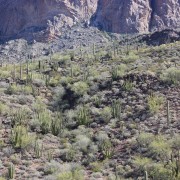
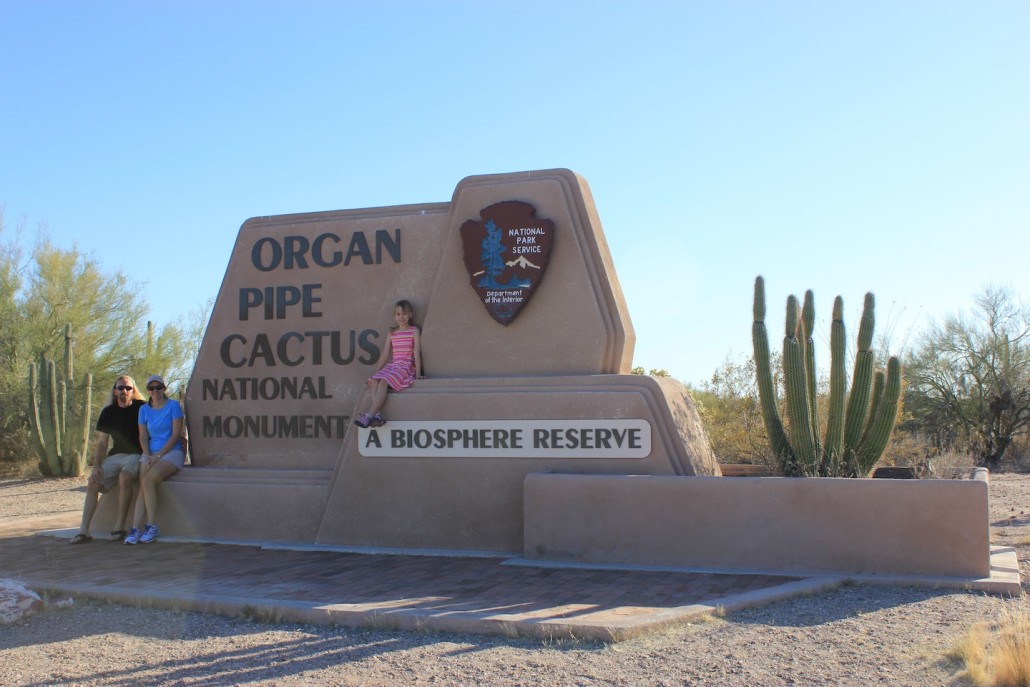
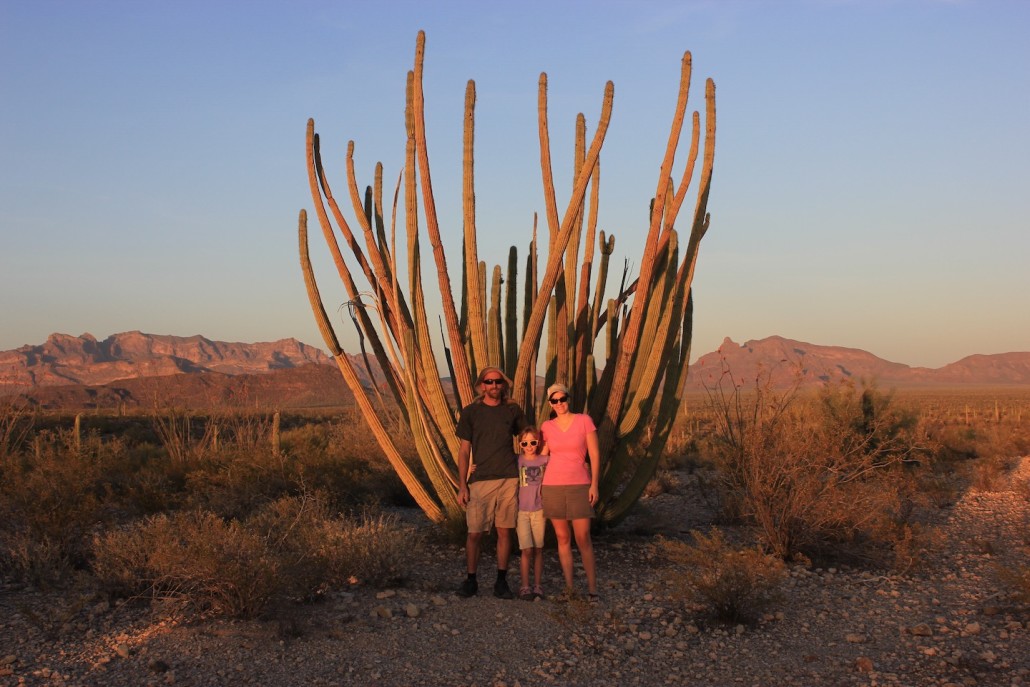
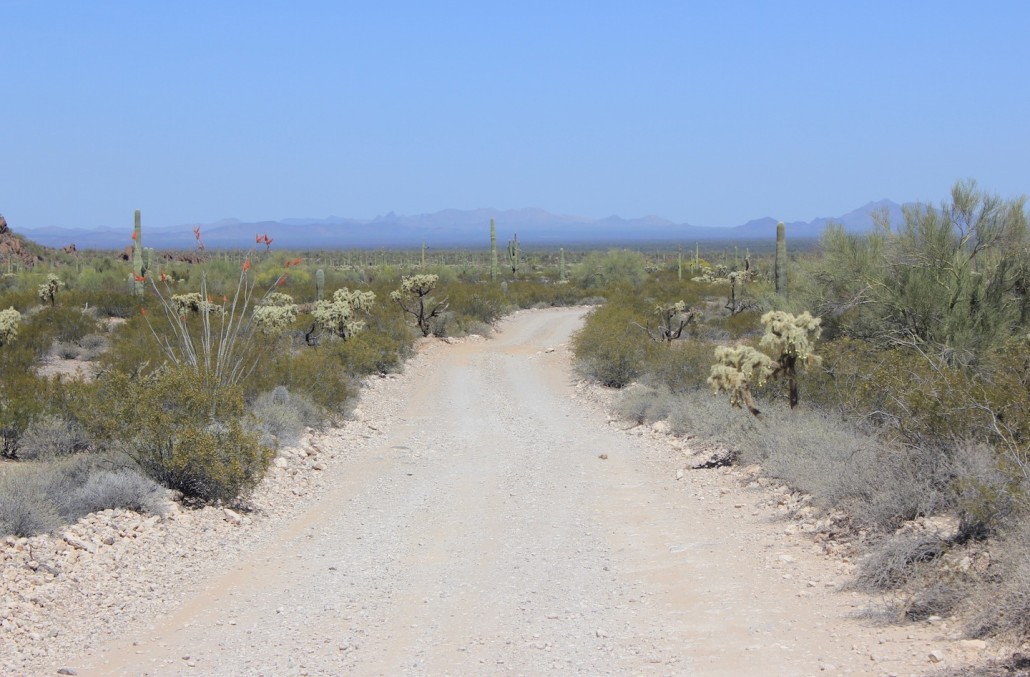
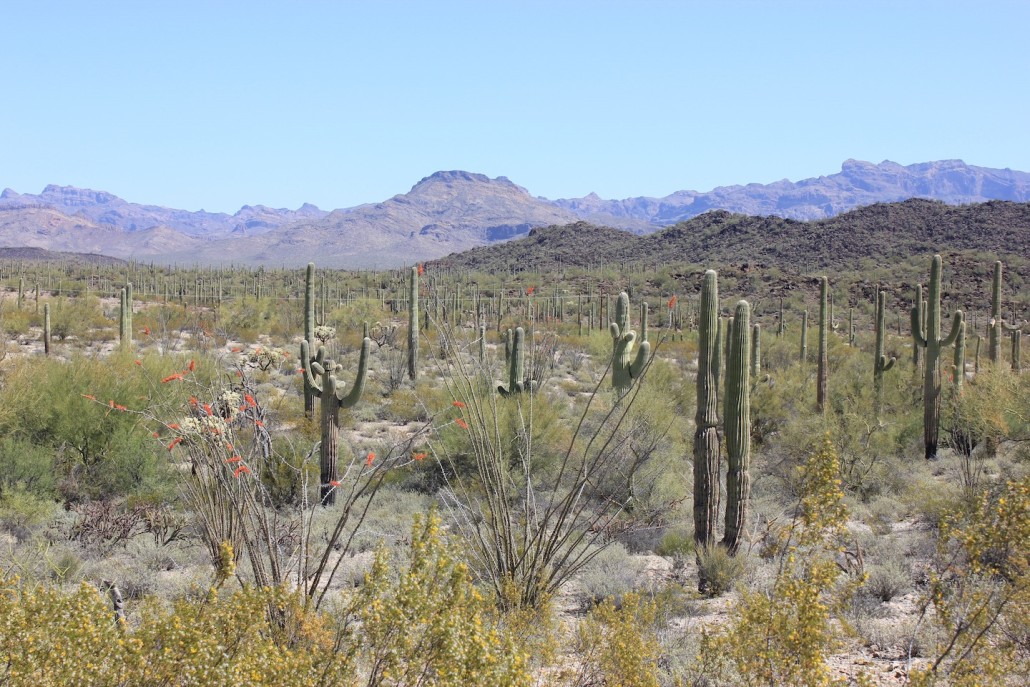
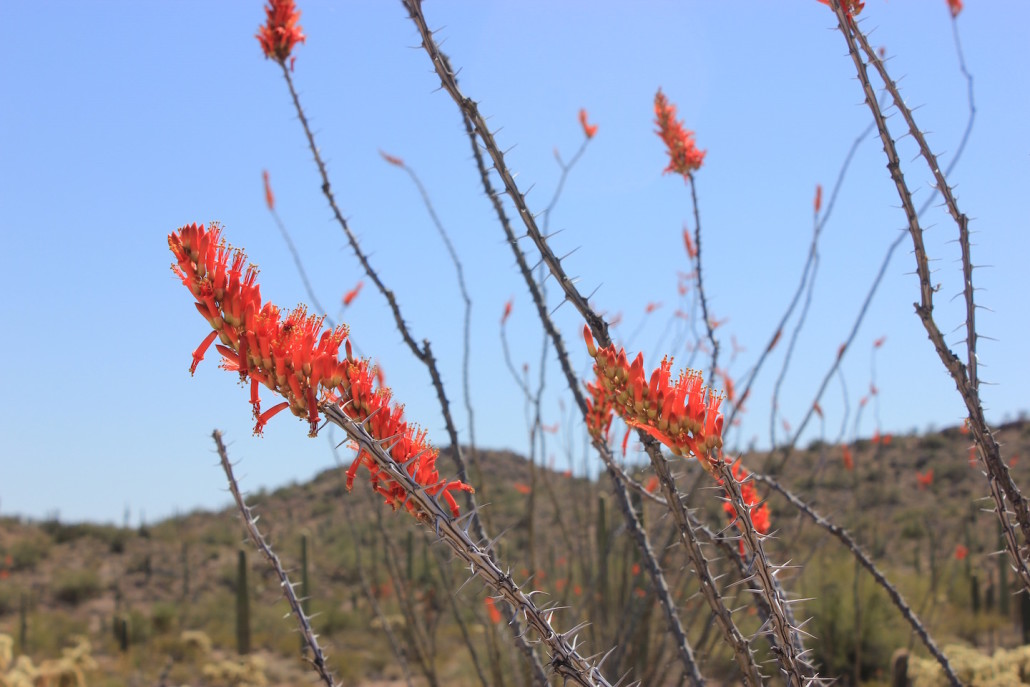
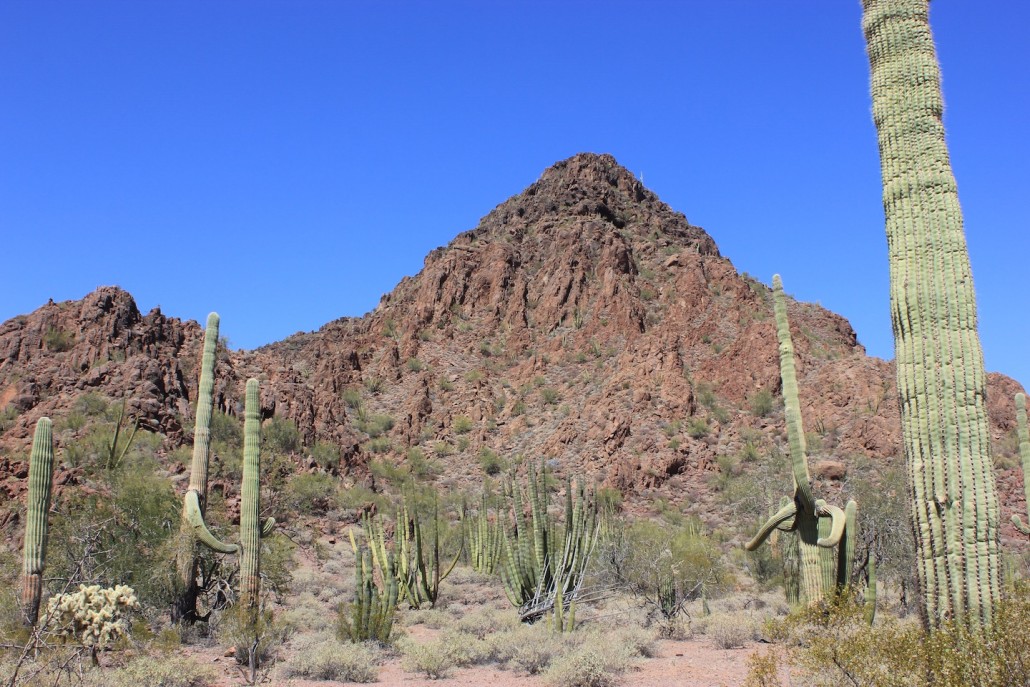
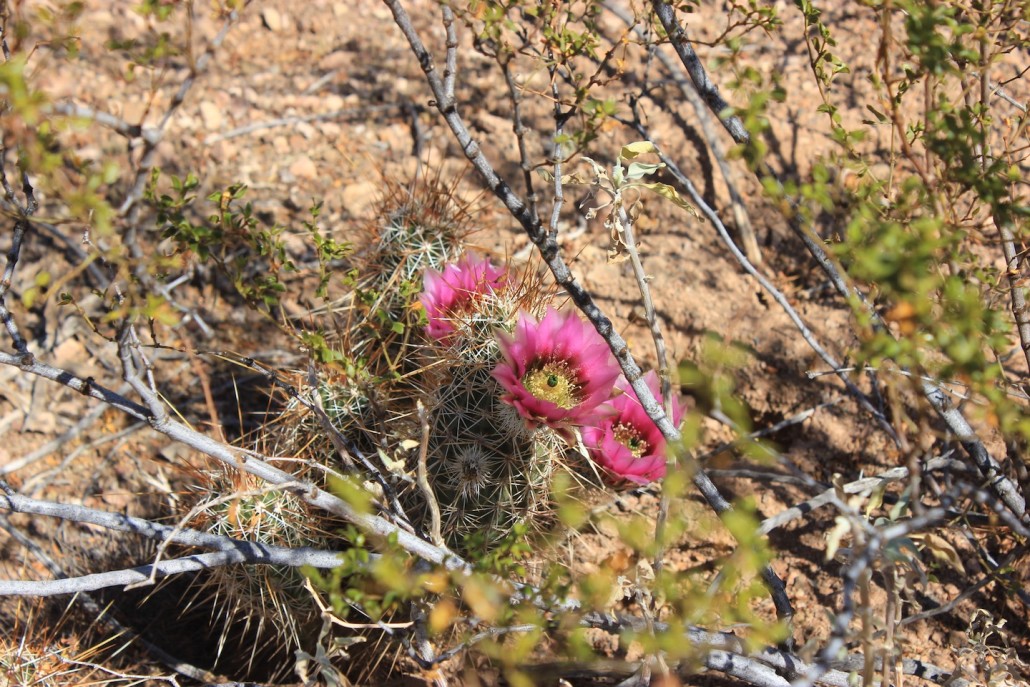
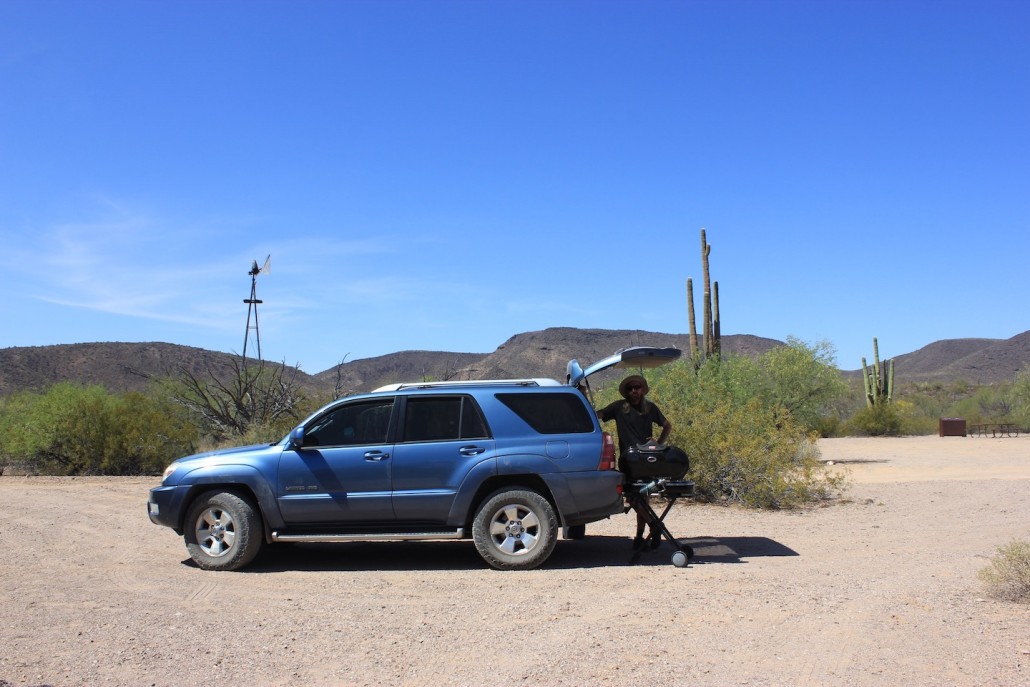
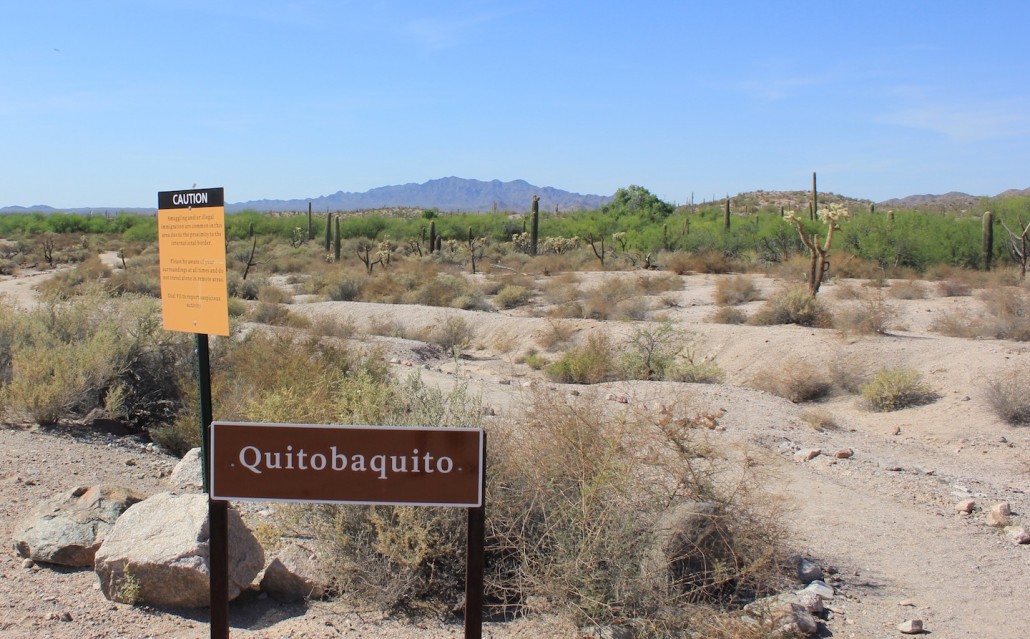
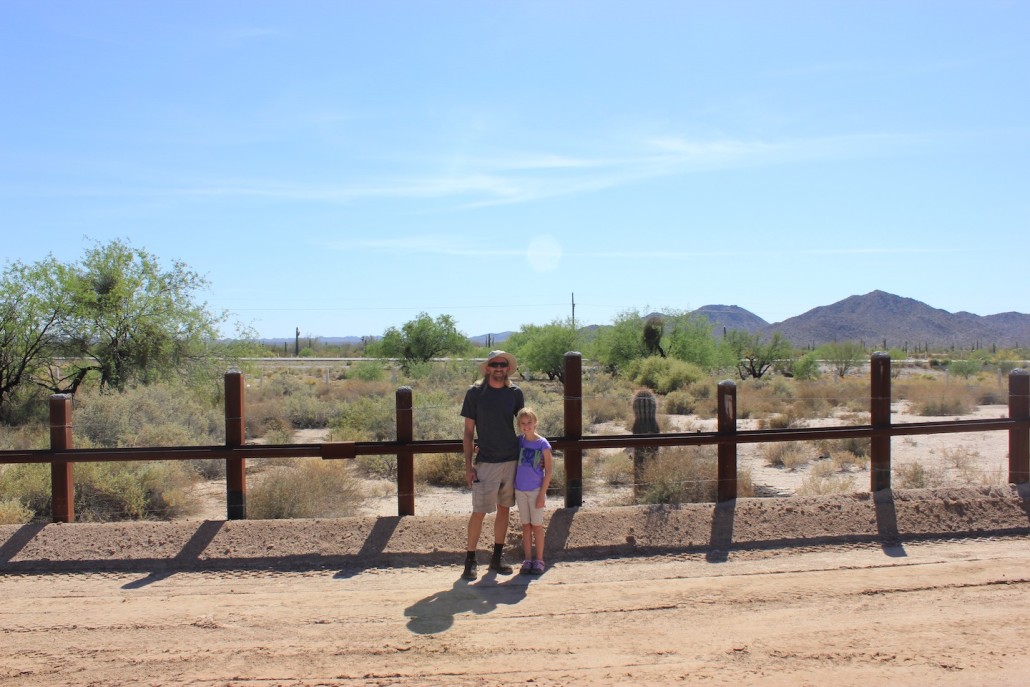
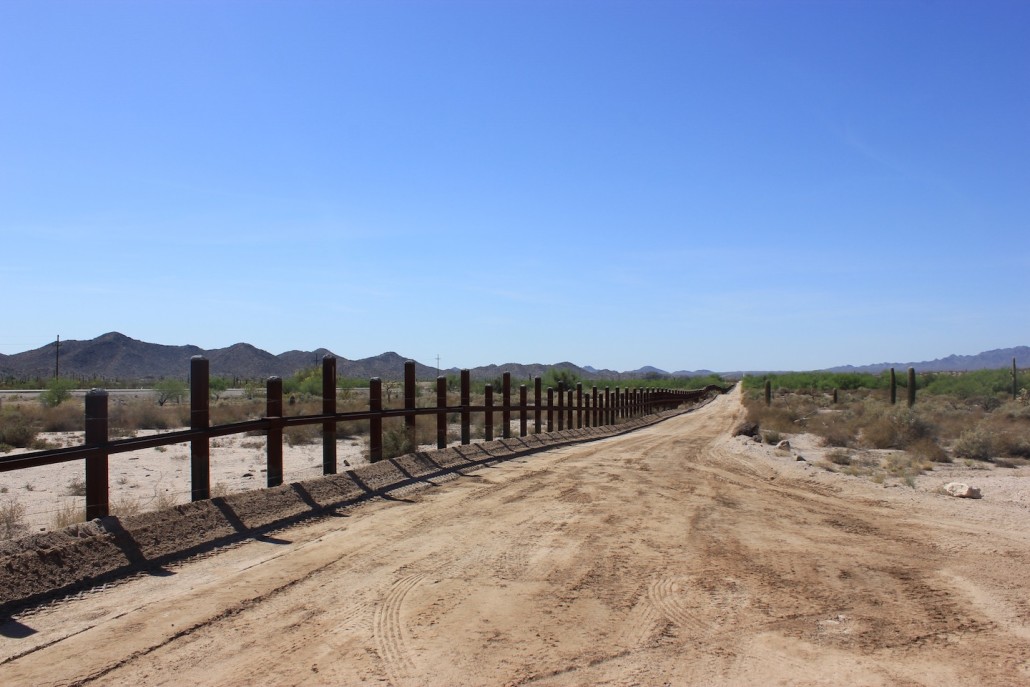
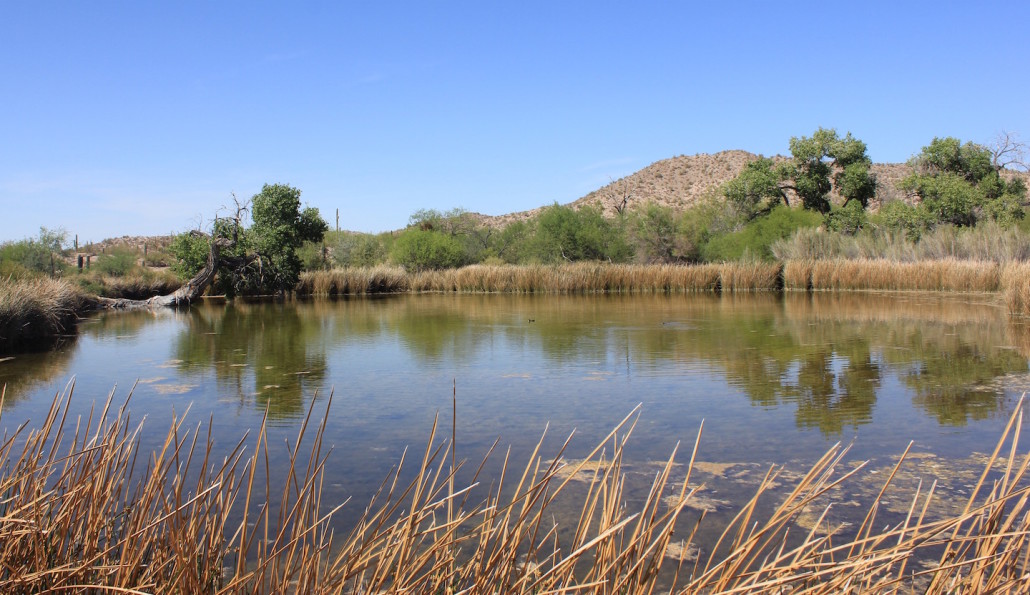
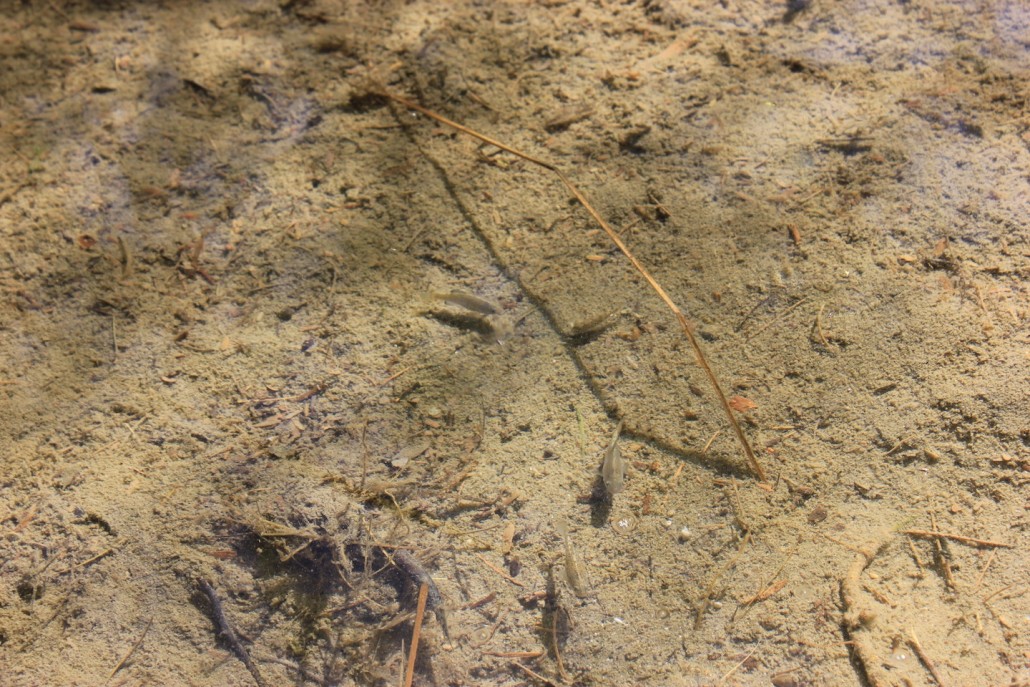
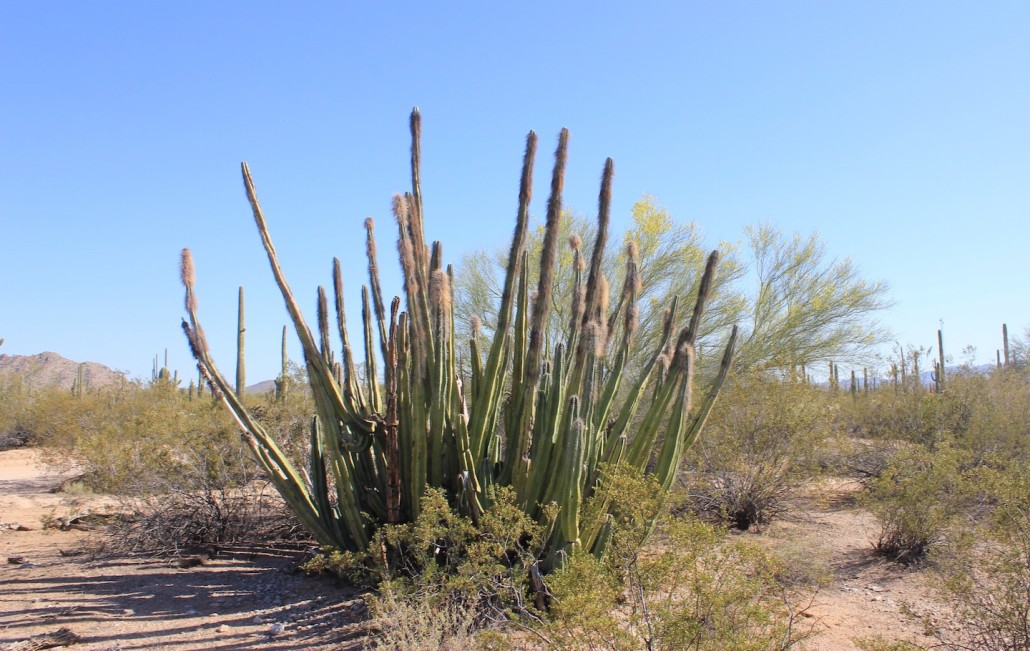
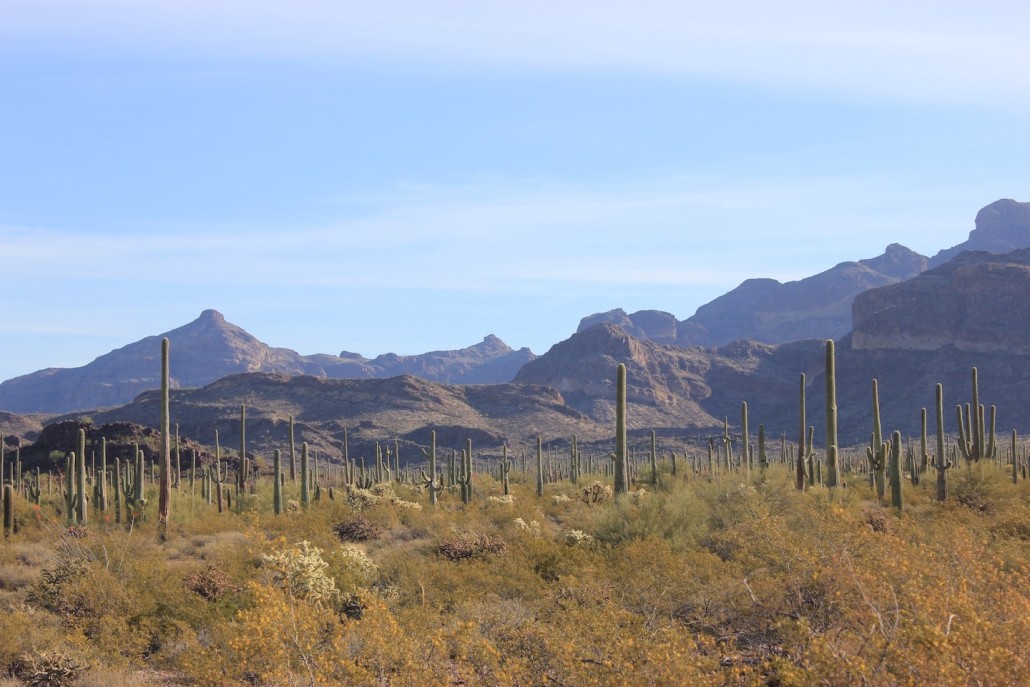
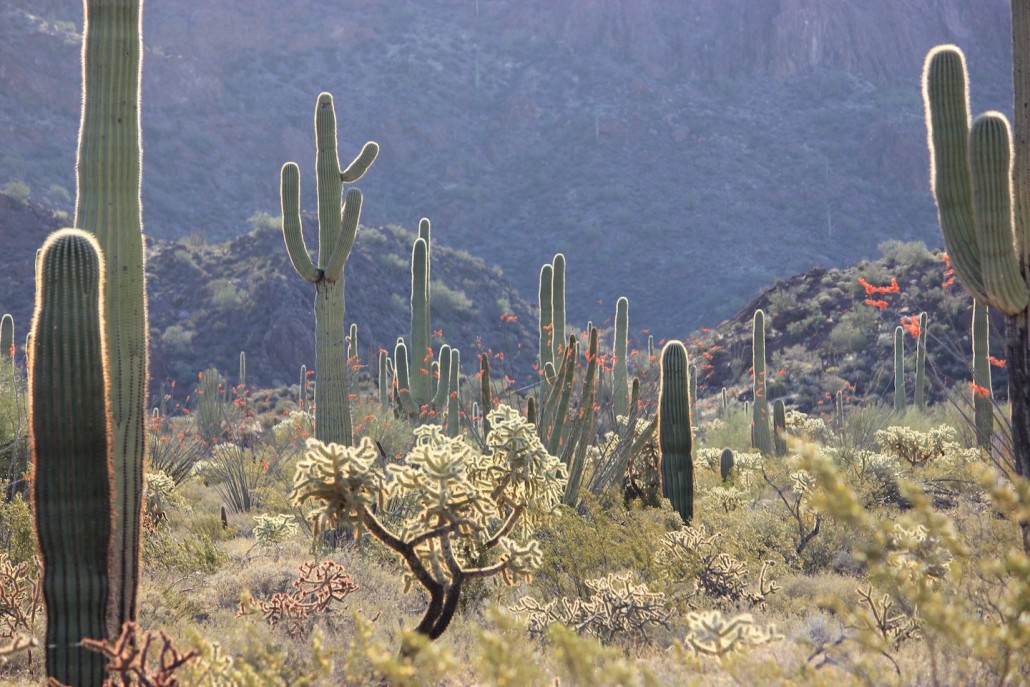
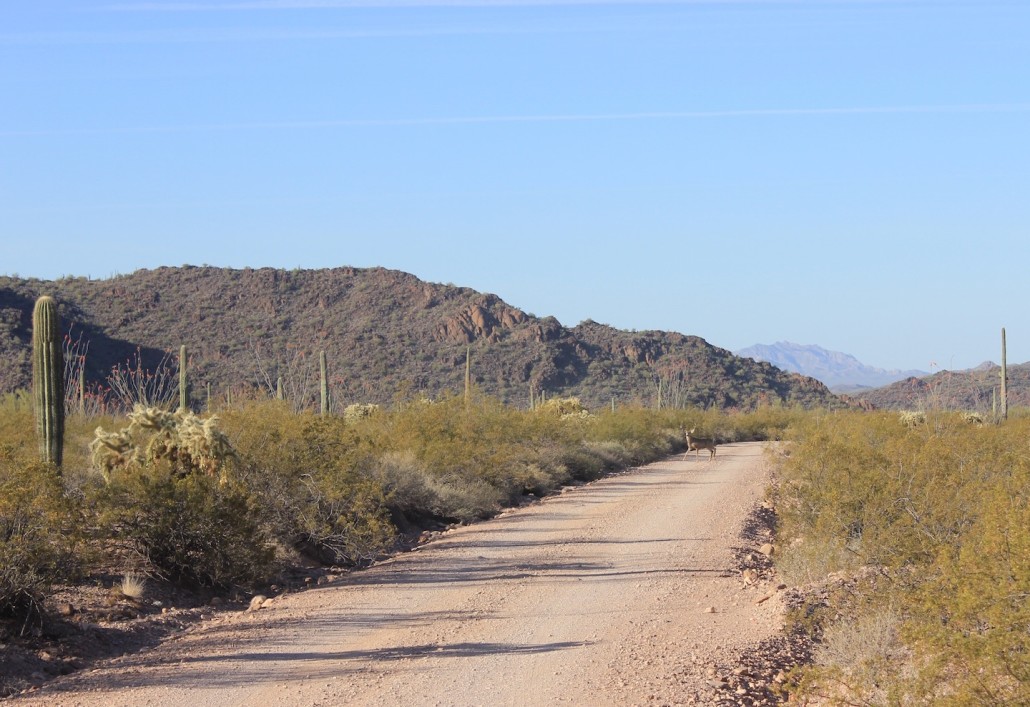
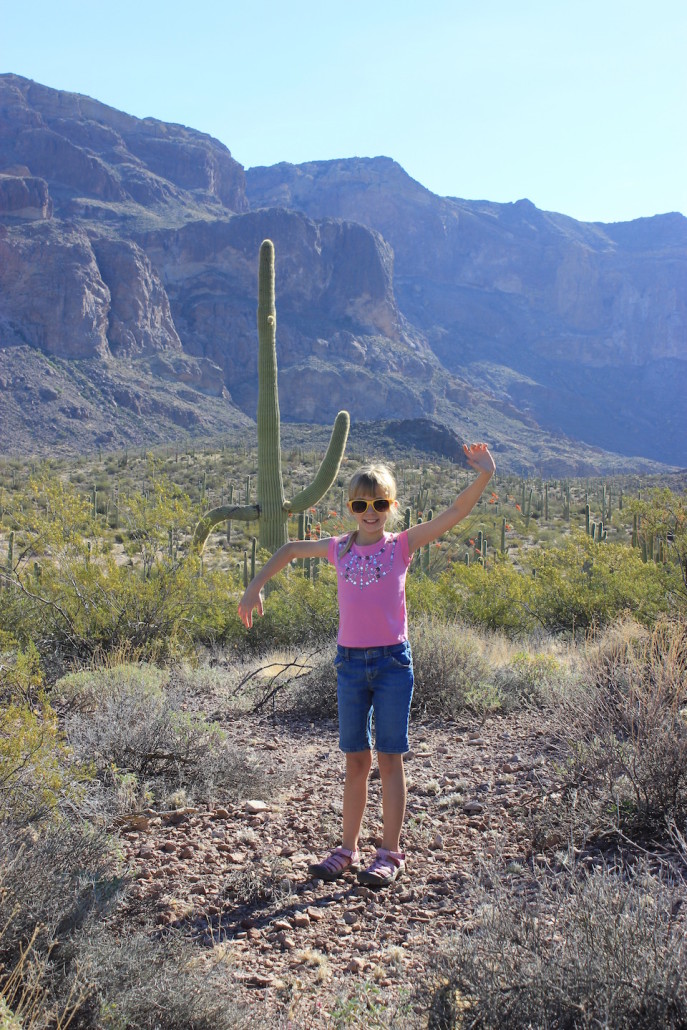
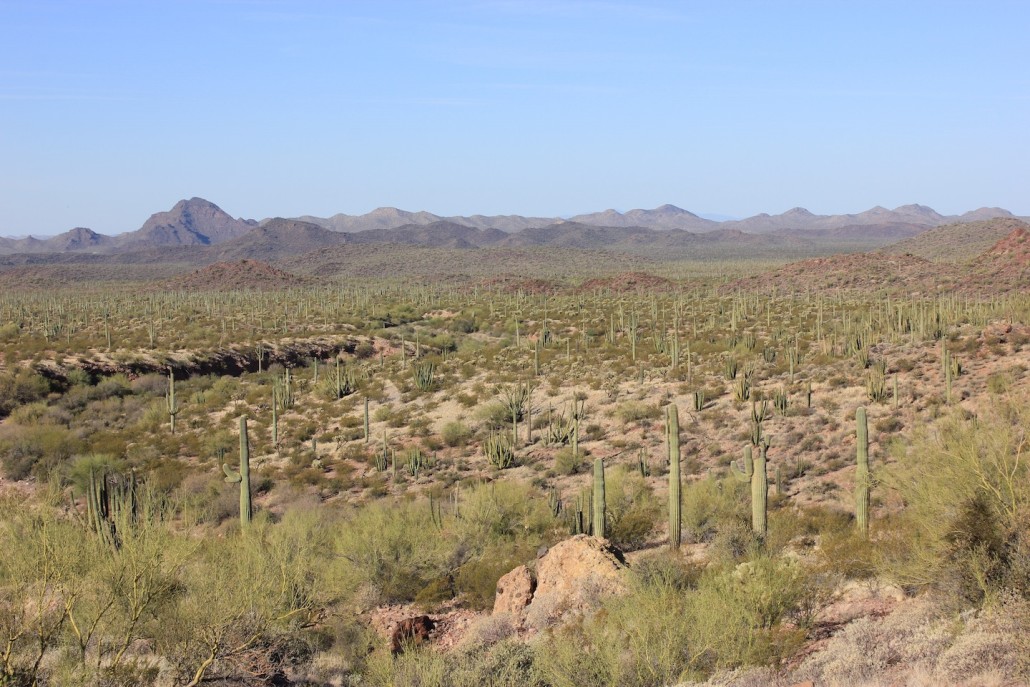
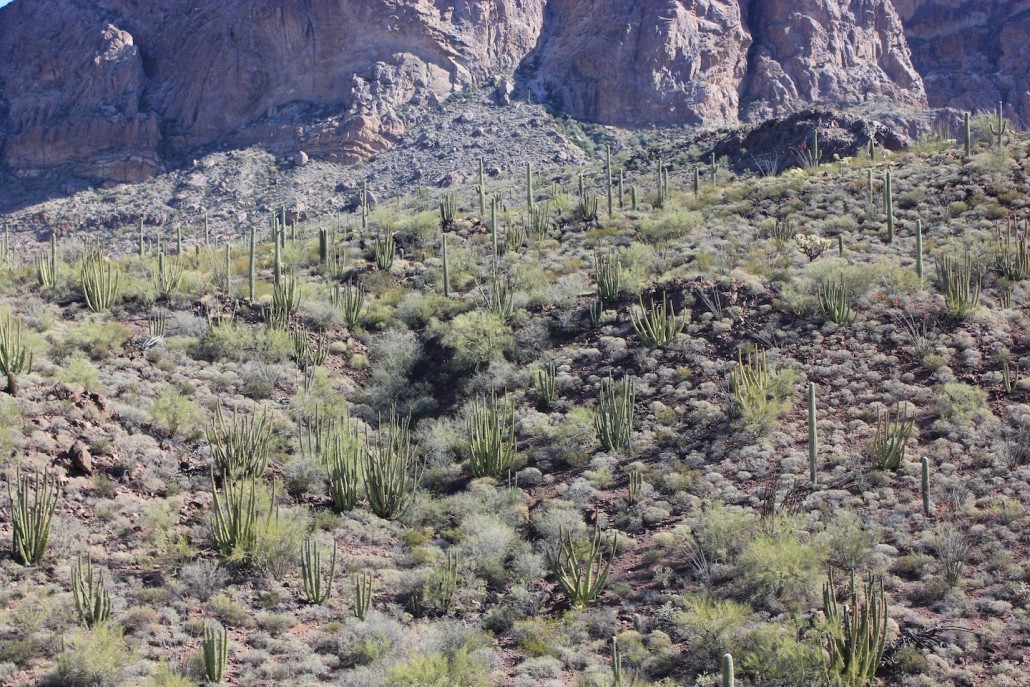
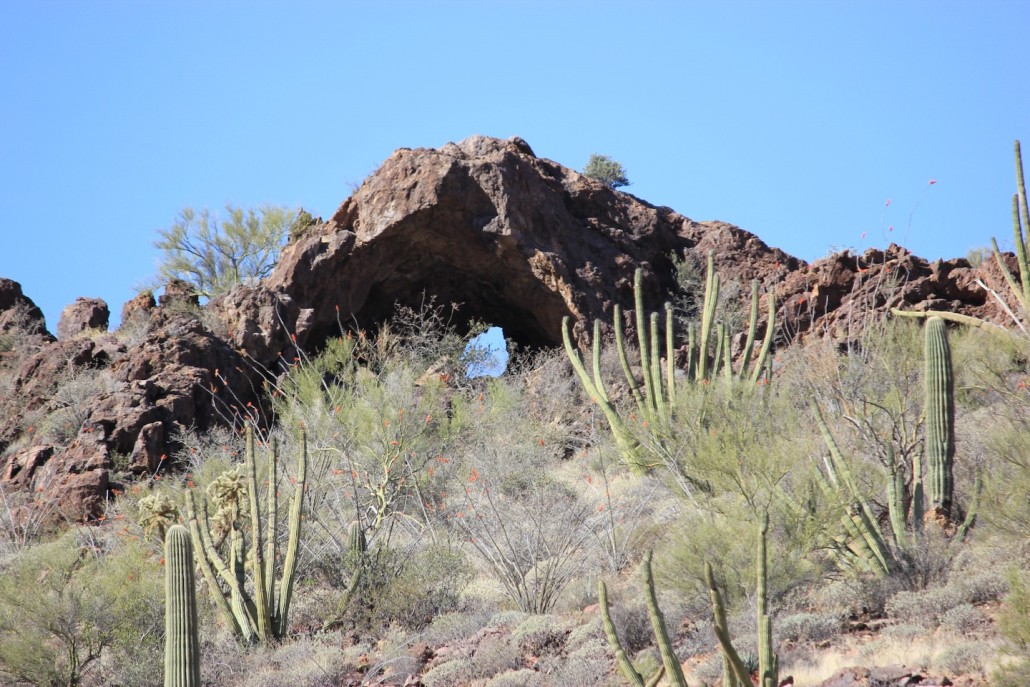
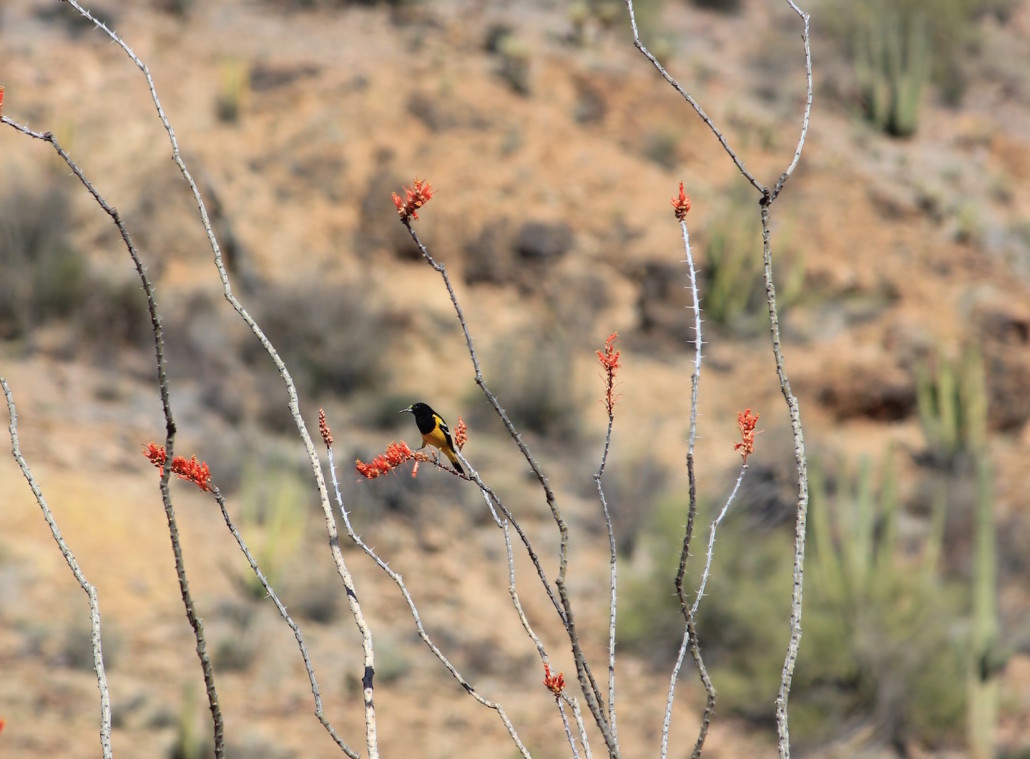
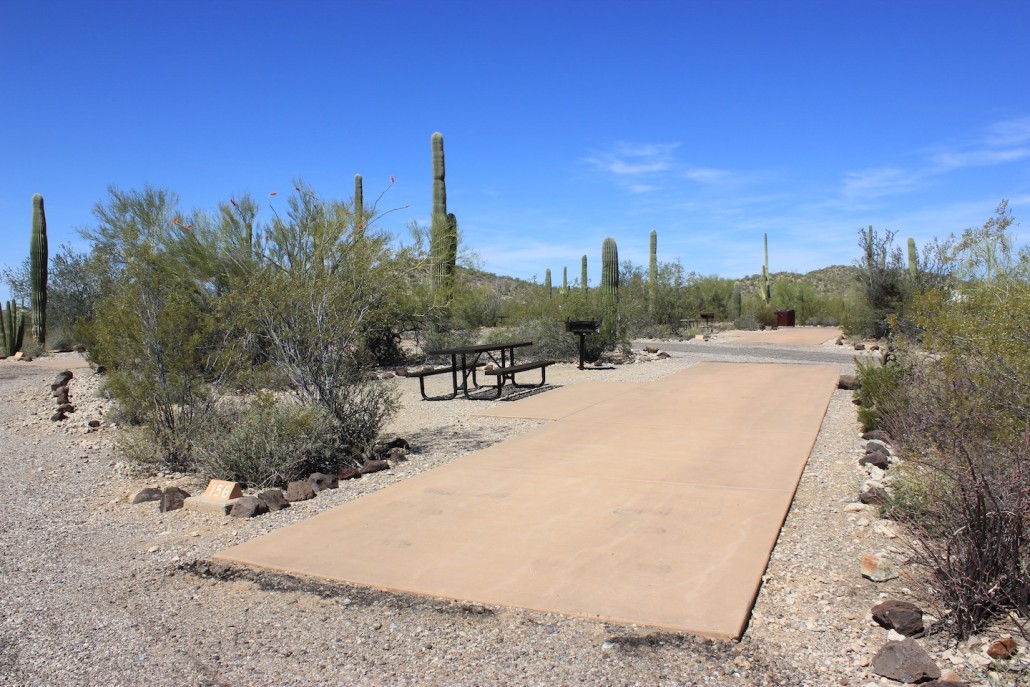
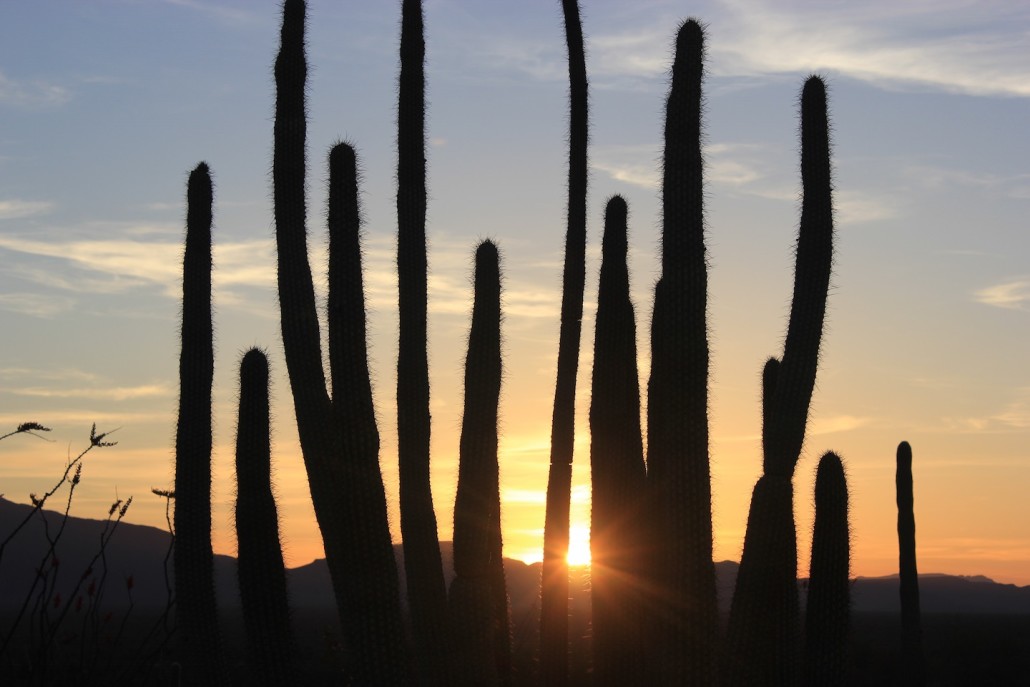


Oh, the morning in the desert and sunrise photos are soo gorgeous!!!!
Thank you! The entire drive was pretty spectacular in person.